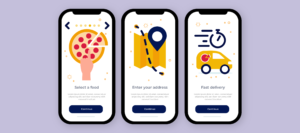Mobile phones have become necessary for us in this digital era. We perform many of the tasks like financial transactions, communication with friends/families, important bookings with our mobile phones in our daily routine activities. We spend a great time in interaction with apps thus continuously increasing the demand for mobile app development and the need for a programming language.
Many of the information technology companies are dealing in developing mobile apps as it is one of the growing industries and expected to grow in the coming years. Which is the best technology, programming language, or library, should I use for my mobile application development project? This is one of the common questions that have come to everyone’s mind as a software development firm.
Questions To Ask When Choosing a Programming Language?
Ask yourself some questions that can be taken into consideration before choosing a programming language. These questions make work easier for the technical manager and he/she is able to make the right decision and choose the best language for developing mobile applications. Here are some questions:-
- Will the language get proper ecosystem support for libraries? Will the language work for the long haul? Whether vendor support will be provided for the language?
- What would be the environment for the project that will run on – web or mobile, etc?
- Do we require any kind of infrastructure such as new hardware in choosing the programming language? What kind of deployment do we require?
- Is there any specific preference of the client – a certain programming language that he/she wants to be used in a project?
- Are there any specific requirements regarding libraries, features, and tools for a programming language – that are required for a particular project?
- Are our developers capable enough to code in this language, or do we have to hire new developers? Can our developers be experienced and comfortable in working with a particular language, or do they need to learn the programming language quickly?
- What are the major constraints on resources of this project – time and budget?
- What would be the output of the project in terms of performance? Does the chosen language accommodate the benchmarks and the performance?
- Do we require the use of third-party tools?
- What are the security considerations we have to consider in the programming language?
The aforementioned questions clarify doubts up to some extent in choosing the programming language for a project.
Also Read – 10 Simple Tips To Choose the Best Mobile App Development Company
Top Programming Languages and Their Usage
A list of Programming languages along with their usage are listed below:-
- Python, R, Clojure, Julia: Analytics & Machine Learning
- C/C++ : Operating Systems and System Tools
- Golang: Server-Side Programming
- Java, C#, C++, Erlang: Enterprise Applications Development
- Python, R, Java, C#: Data Visualization
- JavaScript, PHP, Ruby, HTML/CSS, TypeScript: Web Applications Development
- SQL: Data Management
- Swift, Java, Javascript, Object C: Mobile Applications
- Matlab, FORTRAN, ALGOL, APL, Julia, R, C++: Math & Scientific Computing
- Java, Python, R, Scala, Clojure: Big Data
Factors To Consider in Choosing the Programming Language for a Project
Here we have discussed six critical factors that help in choosing the right programming language for a project:-
Type of Application
Before choosing a programming language, you must have a clear goal in your mind about what type of application: web application, mobile application, or embedded firmware you are going to develop. Some of the frequently used programming languages including JavaScript, Python, and C# allow developers to build different types of applications for different platforms. Some specific languages perform better in developing particular mobile applications. For example, to develop a native Android app, you must have knowledge of Java or Kotlin, while for developing a native iOS app, you need a Swift or Object- C. However, for embedded firmware, you need C or C++.
Complexity of Application
The size and complexity of a project also play a crucial role that helps in deciding which technology stack we have to use in a project for developing applications. We have listed it below:-
- Small projects including simple marketing websites, portfolio presentations, simple personal blogs, and web application forms to collect data can be developed with CMS systems like WordPress (requires knowledge of PHP) or Umbraco (requires knowledge of C#).
- Medium-sized projects such as internal enterprise applications, e-commerce sites, and IoT solutions have different layers, integrations, and components which require knowledge of general programming languages such as Java or C#.
- For better results, we break down the complex applications into smaller components where each of the elements serves as a specific function, and then we use different technology.
Targeted Platform
It is one of the important factors in which platform you want to run your program that you must have to consider in choosing the programming language. Let’s assume, you have two languages: Java and C. If you have written a program in C and want to run on Linux and Windows platforms, for this you would require compilers and two different executables. While for the Java language, the bytecode will be generated that can run on any machine. For that, it is compulsory that you have installed Java Virtual Machine (JVM).
The same thing applies to website pages as it works and looks the same across all browsers. If you are using CSS3 and HTML 5 tags without even checking the browser compatibility then your website may behave and look differently across different browsers.
Maintainability
We get the ecosystem of libraries and vendor support for whatever technology we have chosen for a project. The maintainability of the application is a must in choosing a programming language and this is one of the major reasons that we have to pay attention whatever we have chosen is the latest and updated and will stay in the market for a long time.
The main purpose of developing an application is to engage our clients for the long term and at some point, we need to transition a codebase to another team. If you are planning to hire an internal developers team in your area, then the maintenance cost will be influenced by the availability and proficiency of development talent in your area.
For example, in the Midwest, Java and C# developers will get easier than the Ruby, Python, or PHP developers. We have to take this into consideration while selecting a programming language to maintain the ease and long-term sustainability of the codebase.
Security
Security is one of the major factors in choosing a programming language as every application has a different set of security requirements. For example, healthcare-related applications and financial-based applications might require HIPAA and PCI compliance respectively. It’s essential to keep an eye on the security section thus it makes your application more robust.
To protect the application from cyber threats and attacks you have to follow the proper security guidelines.
You Might Like – Top 3 Cross-Platform Frameworks Till The Date
Community Support
Community Support is an important factor to choose a programming language for the application. Might be you get stuck somewhere in the development stage as community support allows you to take the help from some other resources or some other developers.
The programming language you have chosen for a project doesn’t have tutorials, videos, or articles to learn then it would be difficult for you to adapt and work on that language. Must check the articles, forums, video tutorials, or any community support such as GitHub, Reddit, or StackOverflow before choosing the programming language.
Final Words
A list of questions and a list of programming languages helps the technical manager to make sensible decisions to choose the right programming languages. For better decisions, you can compare the languages based on the above factors and choose one that is viable for your project.




